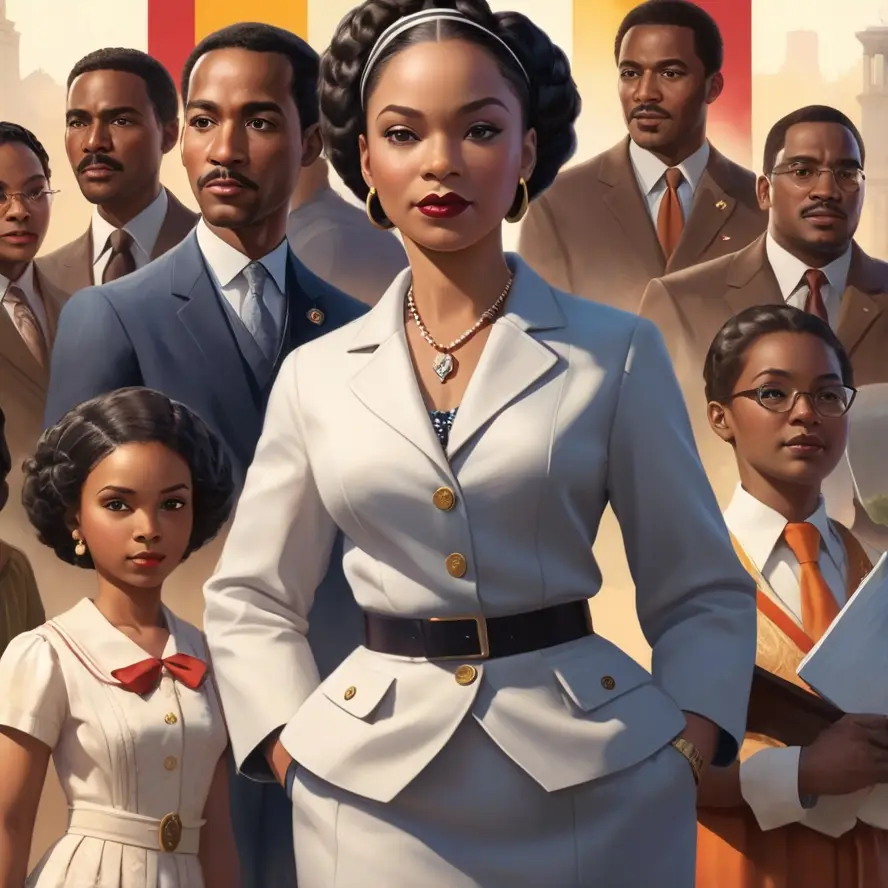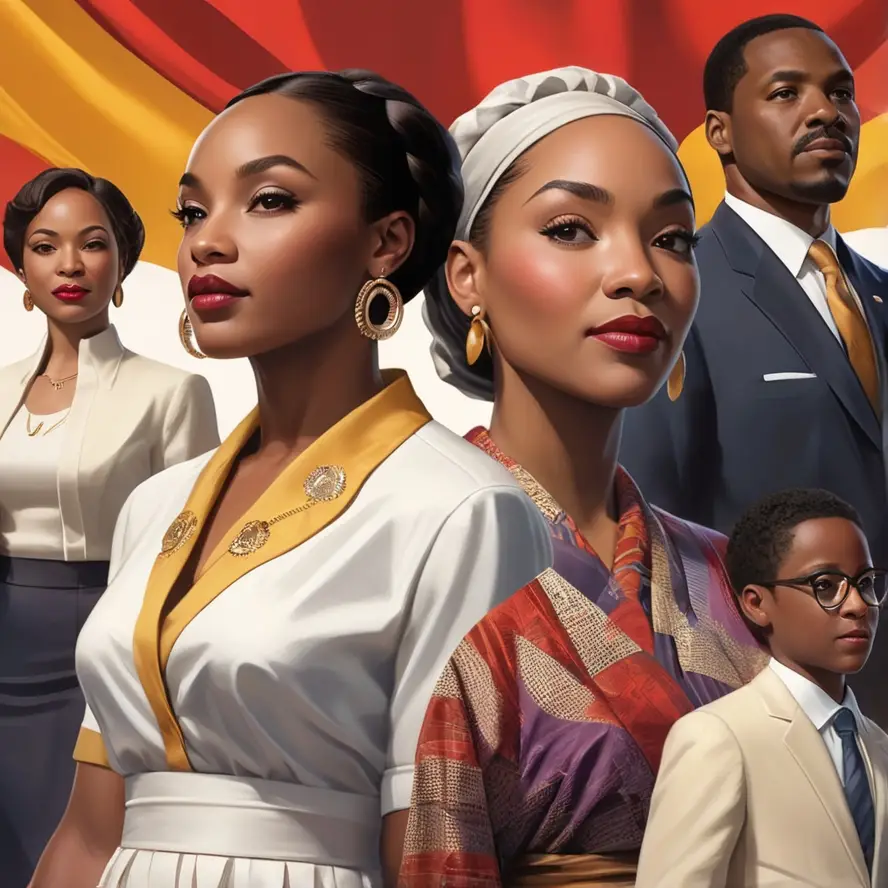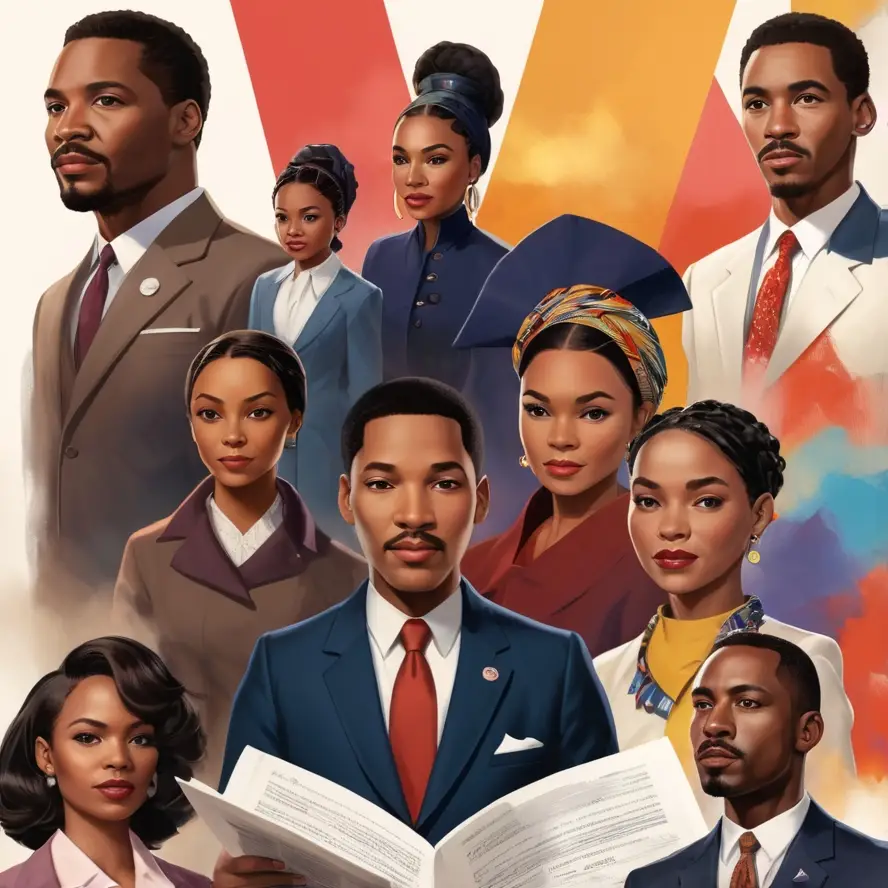Black History Month is not just a time to reflect on the struggles of African Americans, but a time to honor their accomplishments and contributions to society. Celebrated annually in the United States during February, Black History Month provides an opportunity to highlight the rich history and cultural heritage that has shaped the nation’s development. In this article, we will explore the significance of Black History Month, its origins, how it is celebrated, and why it is essential to keep the memory alive for future generations.

What is Black History Month?
Black History Month is a month-long celebration dedicated to recognizing and honoring the achievements and contributions of African Americans throughout history. It serves as a reminder of the challenges and triumphs that have shaped the African American experience, from the Civil Rights Movement to present-day leaders, artists, and activists.
The month of February was chosen for Black History Month as it coincides with the birthdays of two iconic figures in the history of the United States: Abraham Lincoln (February 12) and Frederick Douglass (February 14). Both men played pivotal roles in the abolition of slavery and the advancement of civil rights for African Americans.
Origins of Black History Month
The story of Black History Month dates back to 1926 when Carter G. Woodson, an African American historian, and the Association for the Study of Negro Life and History (ASALH) established Negro History Week. Woodson believed it was crucial for African Americans to learn about their history, culture, and contributions, which were often ignored in mainstream education.
The celebration began in February to coincide with the birthdays of Lincoln and Douglass. In 1976, during the United States Bicentennial, President Gerald Ford officially recognized Black History Month, expanding the week-long celebration to a full month. Since then, every U.S. president has endorsed the celebration, and the month of February has become an annual observance.

Why is Black History Month Important?
Black History Month plays a critical role in raising awareness about the impact African Americans have had on history, culture, and society. It provides an opportunity to educate people of all races about the struggles, resilience, and contributions of the African American community. Without this recognition, many vital moments in history would remain unknown or forgotten.
Additionally, it helps to highlight the ongoing fight for racial equality. While Black History Month commemorates the past, it also draws attention to the present and future of African Americans. It encourages conversations about social justice, civil rights, and equality for all.
Key Figures in Black History
Over the years, numerous African Americans have shaped the course of history. Here are just a few key figures whose legacies continue to inspire us:
1. Martin Luther King Jr.
Dr. Martin Luther King Jr. was a prominent leader of the Civil Rights Movement, known for his commitment to nonviolent resistance and his famous “I Have a Dream” speech. His leadership led to significant changes in U.S. law and culture.
2. Rosa Parks
Rosa Parks‘ act of defiance on a segregated bus in Montgomery, Alabama, became a pivotal moment in the Civil Rights Movement, sparking the Montgomery Bus Boycott and bringing attention to racial segregation.
3. Harriet Tubman
Harriet Tubman, known as “Moses,” led hundreds of enslaved African Americans to freedom via the Underground Railroad. Her courage and determination continue to inspire those fighting for freedom and justice.
4. Malcolm X
Malcolm X was an African American Muslim minister and human rights activist who advocated for the empowerment and self-defense of African Americans. His transformation from a criminal to a leader remains an essential story in the fight for racial justice.
5. Maya Angelou
Maya Angelou was an influential poet, memoirist, and civil rights activist. Her literary works, including her autobiography I Know Why the Caged Bird Sings, are powerful reflections on overcoming adversity and embracing one’s identity.

How is Black History Month Celebrated?
Community Events and Programs
Across the United States, schools, universities, and cultural organizations hold a variety of events to celebrate Black History Month. These may include lectures, film screenings, music performances, and art exhibitions that highlight African American culture and history.
Educational Activities
Many teachers incorporate lessons about Black history into their curriculum during February. These lessons may focus on historical events, influential figures, and the ongoing struggle for equality. Special activities, such as quizzes, essays, and artwork, help students engage with the material and reflect on its significance.
Public Celebrations and Parades
In some cities, public parades and festivals are organized to celebrate Black culture and history. These events often feature music, dance, food, and fashion, providing an opportunity for communities to come together and celebrate African American culture.
The Role of the Media in Black History Month
The media plays a significant role in educating the public about Black history during this month. Television stations air documentaries, news stories, and movies about the lives and contributions of African Americans. Social media platforms also become a place for individuals, organizations, and educators to share important information and resources about Black history.
Black History Month Around the World
While Black History Month is predominantly celebrated in the United States, other countries also recognize the contributions of African Americans. Canada, the United Kingdom, and the Netherlands, for example, have begun observing similar celebrations, albeit in different months. In the UK, for instance, Black History Month is observed in October.

Celebrating Black History Month Beyond February
While February is the designated month for Black History Month, the celebration should not be limited to just 28 or 29 days. It’s essential to recognize and celebrate African American history year-round. History books, documentaries, and other resources should continue to highlight the significance of African American culture and contributions throughout the year.
Conclusion: The Legacy of Black History Month
Black History Month serves as an essential reminder of the importance of acknowledging the past while working toward a future of equality and justice. It is a time to reflect on the struggles and triumphs of African Americans and to honor their immense contributions to society. As we celebrate this month, let us remember that Black history is American history, and its legacy should be cherished and passed on to future generations.
FAQs About Black History Month
1. When did Black History Month become an official celebration?
Black History Month became an official celebration in 1976 when President Gerald Ford recognized it during the United States Bicentennial.
2. Why is Black History Month celebrated in February?
February was chosen for Black History Month because it coincides with the birthdays of Abraham Lincoln and Frederick Douglass, two key figures in African American history.
3. Who started Black History Month?
Carter G. Woodson founded the precursor to Black History Month, Negro History Week, in 1926.
4. How can I celebrate Black History Month?
You can celebrate by participating in community events, supporting African American-owned businesses, learning about influential African Americans, and reflecting on their impact on history.
5. Is Black History Month only for African Americans?
No, Black History Month is for everyone. It is an opportunity for people of all backgrounds to learn about and celebrate African American history and culture.


